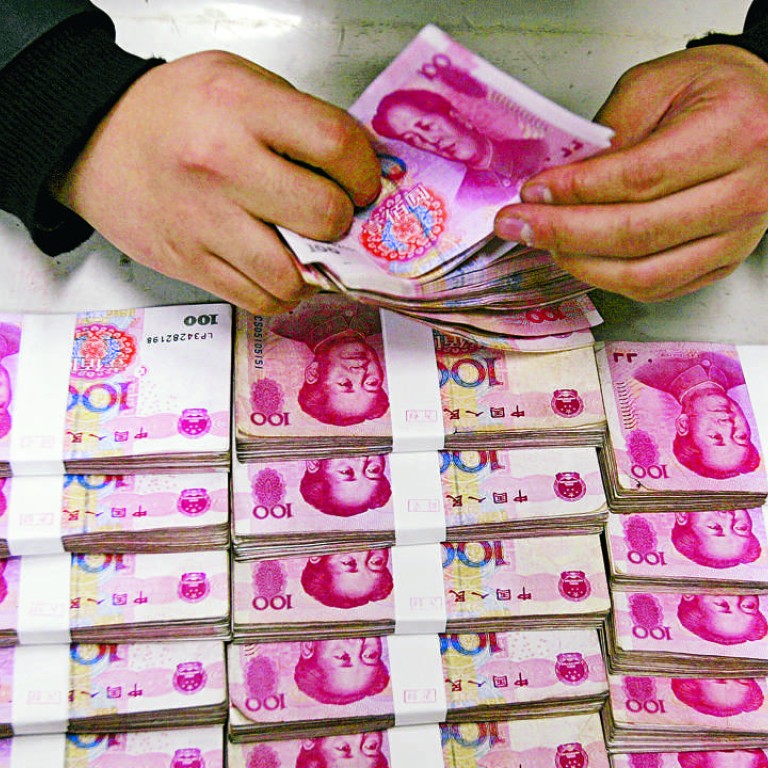
New | Weakening currency affects yuan products in short term
The currency softening is unlikely to affect the viability of RMB denominated assets in the long run, analysts say
The weakening yuan is having an impact on take-up of RMB denominated products at present, though some analysts believe that this will prove of little significance in the long term.
On Friday, the People’s Bank of China set the yuan reference point against the US dollar at its weakest level since early March. Since the US dollar itself has fallen this year against the euro and the yen, the weakening of the yuan more broadly has been perhaps even greater than such headline figures suggest.
As one would imagine, this is having an effect on take up of RMB denominated products sold in Hong Kong. After all, such products will need to make a greater return to negate the impact of the falling value of the yuan. Brett McGonegal, chairman and chief executive officer of Capital link International, says, “RMB denominated assets and debt instruments will suffer from the weakness as all financial products do when the underlying weakens.” Though he adds that while “there is a certain impact with the weakening RMB. I want to be clear that I don’t believe the yuan is being devalued but rather it is weakening.”
The distinction is important, in part in the context of some bellicose remarks as to the valuing of the Chinese currency from overseas, particularly in the US, but also because of the striking impact on both markets and investor sentiment of the supprise decision to devalue the yuan by 2 per cent against the US dollar back in August of last year.
There is no doubt that the current, more gradual and market-led weakening is having an effect on take up of RMB denominated products in the short term, after all, as Eleanor Wan chief executive officer of BEA Union Investment Management explains, in general, Hong Kong investors are very sensitive to currencies. “The RMB had been widely used for investment as investors expected that they could get extra investment return from RMB appreciation, and so besides offering Hong Kong dollar and US dollar share classes, most investment products offer RMB share class too due to strong investor demand.” she says, however, she continues that “with the RMB being weakened from last year, investors currently remain investing in either the Hong Kong dollar or the US dollar.”
The reduced take up of RMB denominated assets is, however, by no means a new occurrence. Andrew Fung, executive director, head of global banking and markets at Hang Seng bank says, “Investor interest has been relatively low since the devaluation move last August and has not recovered much.”
Not all asset classes are equally affected however, and Fung adds that “RMB life and annuity products are least affected as they are long term.”
Ken Wong, Asia equity portfolio specialist, East Spring Investments, also notes that not all products have been affected. “At the moment, most investors are chasing yield related investment products and hence if there are RMB denominated products that can provide a good and sensible yield or return at reasonable prices or valuations, investors will continue to have interest,” he says.
The numbers of such products may be fewer than they were, as the RMB continues to depreciate, but some are bound to remain.
In contrast the market for offshore yuan products has been hit much more strongly. “Offshore yuan deposits have dropped significantly, and once demand is down, it is very difficult for it to come up again,” says Heng Koon-How, senior investment strategist (FX)Private Banking Asia Pacific for Credit Suisse, who adds that with the People’s Bank of China keeping interest rates low, demand seems unlikely to return.
McGonegal, generally takes a positive view for the long term, but pointedly excludes offshore RMB bonds from his optimism. “Dim sum bonds aside, which have been heavily invested in for the purpose of currency appreciation, the more recent instruments will be depressed with the currency but I don’t think there will be any long lasting effect nor any decoupling of correlation to the RMB.”
Sally Wong chief executive officer, Hong Kong Investment Funds Association, says that the long term impact on the market may well be a positive one. “In the last 18 months or so, and in particular since August 11 [when People’s Bank of China announced the 2 per cent devaluation], investors understand that you can no longer count on a one-way bet. This inevitably would mean that investors have to brace for more volatilities; and in the short run, it is inevitable that it would sap investors demand for RMB products. However, over the longer term, it is much more healthy because it is just not sustainable for a currency to be forever on an upward trajectory,” she says.

